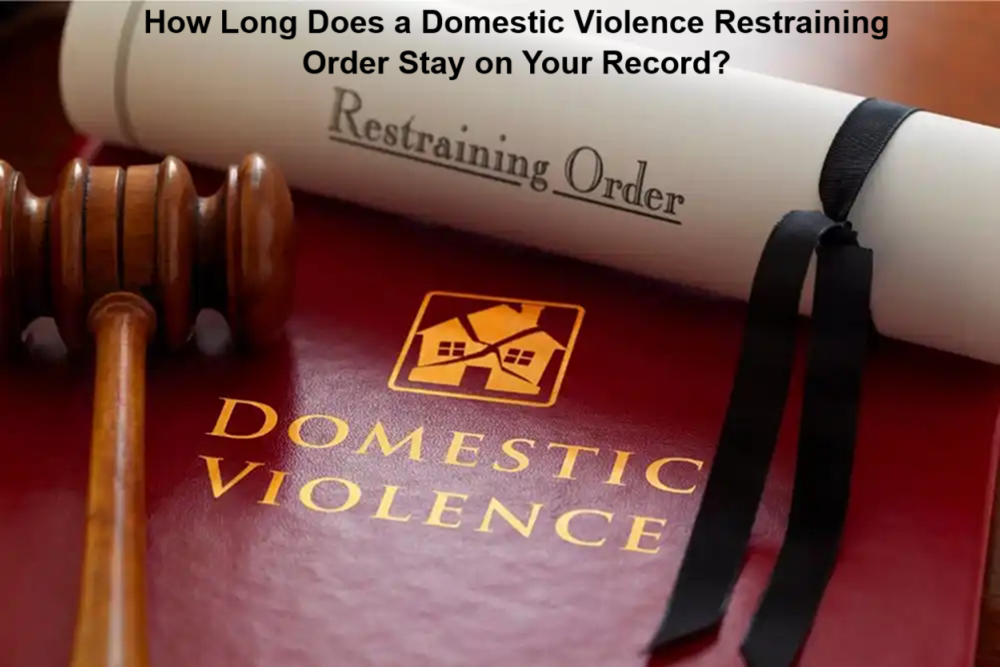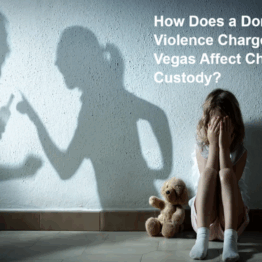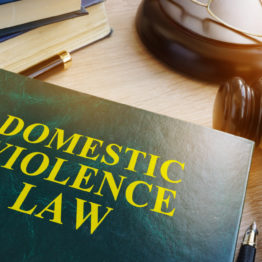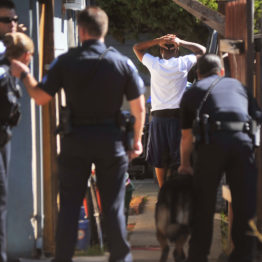
When someone files a restraining order against you due to a domestic violence arrest or incident, it brings up many questions about how it can affect your life. What are your rights? How long will the order of protection last? Can you fight the domestic violence restraining order in court?
If you were accused of domestic violence, a restraining order will have a significant impact on who you can see and where you can go. It may also remain on your record and appear in background checks. Our Las Vegas domestic violence lawyers explain all you need to know.
What Is an Order of Protection for Domestic Violence?
A domestic violence order of protection, also referred to as a restraining order, is a civil court order that protects the applicant from harm, abuse, or harassment by another person.
According to NRS 33.018, parties that can file for a domestic violence order of protection include:
- Spouse or former spouse
- Any other person related by blood or marriage
- Any other person with whom the person has had or is having a dating relationship
- Any other person with whom the person has a child in common
- The minor child of any of those persons
- The person’s minor child or any other person who has been appointed the custodian or legal guardian for the person’s minor child
However, the law does not apply to siblings or cousins unless they have a custodial or guardian relationship with each other.
RELATED: Las Vegas Domestic Violence Penalties — You Must Know
How Long Do Different Types of Domestic Violence Restraining Orders Last?
The first thing to understand is that there are different types of restraining orders in Nevada related to domestic violence. How long it lasts will depend on the type and whether the court denies the restraining order.
Temporary Protection Order
A temporary restraining order (TRO) is granted based solely on the written application. If the judge reviews the application and finds that domestic violence was committed or there was a domestic violence threat, the court will grant a temporary order that can last up to 45 days or until a court hearing for an extended protection order.
With temporary orders, the adverse party or person against whom the applicant is filing a restraining order does not have to be notified. The only factor the judge considers is the application.
Extended Order for Protection
After notifying the adverse party and having a court hearing, a judge may grant an extended order for protection or a permanent restraining order that can last for several years. During the hearing, the defendant has the opportunity to tell their side of the story and present evidence that supports their case.
The judge is the only person who can dismiss or modify an order for protection. You can work with an attorney to discuss your legal options, permanent order denials, and whether a request for dismissal can be filed in court.
Does a Restraining Order Go on Your Criminal Record?
A restraining order is filed in civil court and does not appear on your criminal record. However, it can be on your public record. Additionally, you may face criminal charges if you violate the terms of your restraining order, which would appear on your criminal record.
Active temporary restraining orders may be available in law enforcement databases. If a permanent restraining order is denied, you will be removed from the database after the TRO becomes inactive.
Does a Restraining Order Show Up on a Background Check?
While a restraining order typically does not appear in standard background checks because they are civil matters, it will show up in more detailed background checks. This could impact your ability to apply for certain job positions or obtain security clearance. Rental applications and most background checks for non-government jobs will not show your restraining order.
However, violating a restraining order could lead to criminal charges, such as trespassing, assault, or stalking. These charges and their penalties, including jail time and fines, are generally reflected in standard background checks.
What Happens After Restraining Orders Expire?
After an order for protection expires, you are no longer legally bound to its terms. The restrictions end, and you will not face consequences for going outside of the order’s limitations.
It is crucial to know when your restraining order will expire or is lifted to ensure you do not violate the terms. The protected person can also request to renew the restraining order.
Typically, an expired restraining order will remain on your record where law enforcement can access it, even if it is no longer active. If you have domestic violence charges on your record, consult a domestic violence attorney to learn about record sealing and if you are eligible.
How Can You Have a Restraining Order Removed from Your Record?
In some cases, you can either dissolve or modify a restraining order through a court petition. You can file a motion if:
- The restraining order was granted improperly
- The order for protection is no longer needed
- The terms of the order are overly burdensome or broad
The court will review your motion and decide whether to schedule a hearing. Depending on the evidence presented, the court may grant your motion and make the restraining order inactive.
RELATED: What To Do If You Are Falsely Accused of Domestic Violence
Speak with an Experienced Domestic Violence Lawyer in Las Vegas
The process to lift a restraining order in Nevada can be lengthy and complicated without an experienced legal professional on your side. It can also feel overwhelming to face domestic violence charges that affect every aspect of your life.
Our trusted team at Domestic Violence Lawyers of Las Vegas can help you build your defense against domestic violence charges and ensure you are treated fairly by the courts. We provide supportive, competent, and aggressive representation to guide you through the legal process and alleviate the stress that domestic violence accusations can bring.
Contact us to schedule a free and confidential consultation with our team. We can discuss the details of your case and how our domestic violence defense attorneys can assist you.






